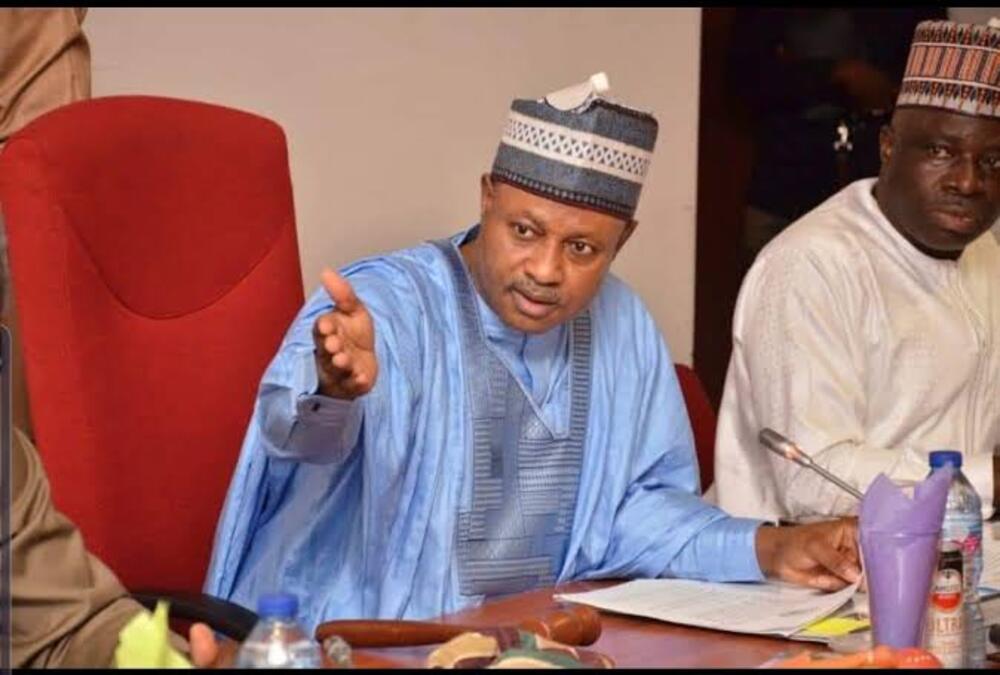Religious Leaders Central To Security, Unity In Kaduna – Sani

Governor Uba Sani of Kaduna State has said that the relative peace being experienced across the state is largely due to the tireless efforts of religious and traditional leaders, who have continued to play a vital role in promoting unity and calming tensions among communities.
The governor, who spoke during an interactive session with religious and traditional rulers in Kaduna on Monday, admitted that without their contributions, his administration’s peace-building efforts would have been impossible.
“If not for our religious leaders, we cannot be standing here today celebrating peace in Kaduna State. They were the first to give me advice when I came into office. They guided me on how to build unity and tranquillity,” he said.
The meeting of the Kaduna Inter-Religious Dialogue on Peace, Unity, and Security Committee, was held as part of activities marking the two-year anniversary of the Uba Sani-led administration.
The event was organised by the Kaduna State Bureau of Interfaith.
Governor Sani lamented the tendency of politicians to abandon religious leaders after elections, only to return to them months before the next polls in search of votes through religious sentiments.
He described clerics as critical stakeholders whose guidance and moral authority are essential not only during political campaigns but throughout the governance process.
“We only remember our religious leaders when it’s a month or two to elections. We go to them using sentiments, using religion, so they can support us. That is wrong.
That is why we believe we need you now—not just during elections. You should guide us, hold us accountable, and walk with us as we try to build a better Kaduna,” he told the religious leaders
According to him, the success of the Kaduna Peace Model, which has drawn national interest for its blend of dialogue and community engagement, was not achieved by government alone.
“Our peace model emphasises non-kinetic approaches—dialogue, trust-building, inclusion. Many states are already copying it. But this success belongs to four key players: our religious leaders, traditional leaders, the communities themselves, and our security agencies,” he said.
He explained that security operatives were deliberately placed lower in the pecking order of the peace process to allow community and faith-based structures to take the lead.
“We made it clear that no security intervention should be deployed without first engaging stakeholders in that community. The people must own the process. They must understand and support it. That’s what makes peace sustainable,” Sani said.
Highlighting some of the progress recorded since he assumed office in 2023, Sani said the restoration of peace in Birnin Gwari, once a hotbed of banditry, is one of the strongest indicators that the model is working.
“Today, by the grace of God and with your prayers, people can now go to Birnin Gwari with their eyes closed. That is an achievement,” he declared, drawing murmurs of agreement from the audience.
The governor also took a swipe at politicians and social media actors who, according to him, deliberately seek to smear the image of respected religious figures for political gain.
He said, “I always say, if we allow our religious leaders to be insulted, to be condemned unnecessarily, we won’t have a country, much less a state
“Whenever things go bad, these same politicians run to clerics for prayers. So why attack them publicly?”
He urged clerics to remain steadfast in their roles as conscience of the society, assuring them of continued respect and protection from his administration.
“Religious leaders are not perfect, but they are central to peace and moral order. We must support them, not pull them down,” he added.
During the meeting, some religious and traditional leaders took turns to express appreciation for the governor’s recognition of their contributions, while also calling for more resources to support community-based peace initiatives.
As Governor Sani’s administration enters its third year, he reiterated his commitment to deepening partnerships with faith-based institutions and local leaders in addressing not just insecurity, but also issues of education, healthcare, and social justice.
“Peace is not just the absence of bullets. It’s also schools for our children, hospitals for our mothers, jobs for our youths. And we cannot achieve any of these without working together with you,” he said.
Earlier in his remarks, the Christian Association of Nigeria (CAN) in the 19 Northern States and Abuja applauded Kaduna State Governor, Senator Uba Sani, for what it described as “a silent transformation” of the state’s inter-religious landscape through inclusive leadership and deliberate peacebuilding efforts.
The Northern CAN’s Chairman, Rev. John Hayab, while calling for a nationwide replication of what it termed the “Kaduna Peace Model,” said the governor’s deliberate outreach to all religious communities had helped to de-escalate decades-long ethno-religious hostilities in the state.
Hayab, who also serves as co-chairman of the committee, noted that Kaduna, once regarded as a flashpoint of sectarian violence, had witnessed a steady return to normalcy, thanks to a combination of “inclusive governance, non-kinetic security strategies, and symbolic gestures that promote unity.”
“Insecurity, mutual suspicion and religious tension once defined Kaduna’s image,” Hayab told the gathering.
“But today, we are witnessing significant progress under Governor Uba Sani, who has shown deliberate commitment to healing and inclusiveness.”
The event, which was attended by top government officials, traditional rulers, clerics from both faiths, security agencies, and civil society groups, provided a platform to assess the progress of interfaith efforts in the state and propose new strategies for sustaining the fragile peace. ENDS.
Poto captions: Cross sections of traditional/ religious leaders at the meeting of the Kaduna Inter-Religious Dialogue on Peace, Unity, and Security Committee, held in Kaduna on Monday.
Religious Leaders Central To Security, Unity In Kaduna – Sani is first published on The Whistler Newspaper





